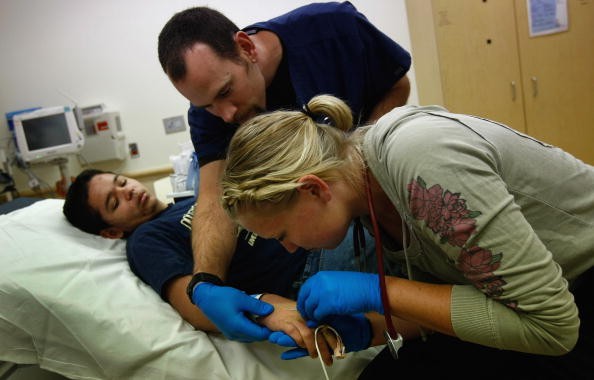A 16-year old kid from South Florida survived a dangerous type of amoeba that eats the brains of its victims. The boy was saved by a drug that is not readily available at most hospitals.
Officials at the Florida Hospital in Orlando reported that, two weeks ago, a 16-year-old Sebastian DeLeon came to the hospital and complaining about headache and light sensitivity. Hospital staffers immediately look for amoeba since another boy had previously died from it, as reported by Fox News.
According to the officials, this type of amoeba kills 97 percent of its victims. It is often contracted through the nose while swimming in freshwater.
According to the report, the doctors decreased the boy's body temperature, put him on coma and gave him a new drug that is not yet available at most hospitals. Luckily, Profunda, the drug manufacturer is based in Orlando and they were able to ship the drug to the hospital quickly.
In just 12 minutes, miltefosine, the newly-approved life-saving drug arrived at the hospital. It was also the drug that saved a girl from Arkansas in 2013, CBS News reported.
Dr. Humberto Liriano, the one who treated DeLeon spoke in a press conference Tuesday morning and recounted how he helped treat the boy and gave an update on the patient's condition. "We are very optimistic," he said. "He's walking. He's speaking. I saw him this morning and he's ready to go home. However, the boy was not completely ready and needs rehabilitation, he added.
Liriano explained that the amoeba that infected DeLeon was Naegleria fowleri. DeLeon was in a theme park along with his family when he developed a severe headache. He was rushed to the hospital where the doctors confirmed his condition.
Naegleria fowleri is a microscopic, single cell amoeba which is found in the brackish waters of freshwater ponds, lakes and rivers. It is not dangerous if swallowed, however, it can attack the brains if it gets into the nasal cavity.
Initial signs of the infection include fever, headache, nausea, vomiting and a stiff neck. The symptoms usually appear between one to 14 days after the infection.



























